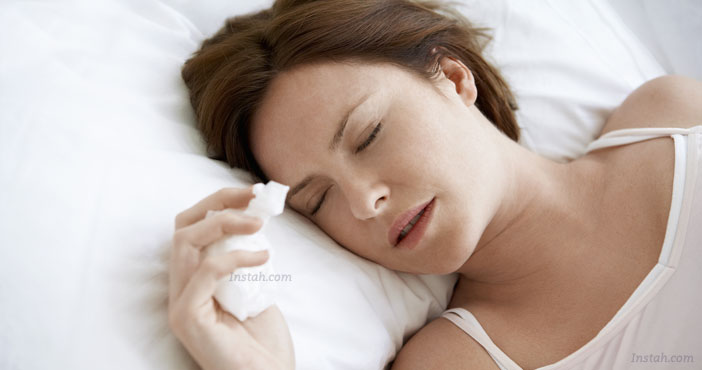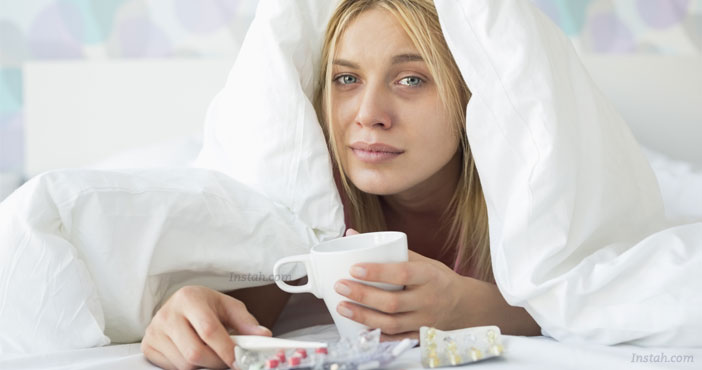It is true that allergies can occur at any point of time and can cause severe discomfort and misery. Many people suffer from itching sensation, or redness of skin or rashes etc. on account of their suffering from some form of allergy. Allergy can be due to substances present in the air, or some food that do not gel with your body system or some medication which that does not suit you bodily functioning.

When most of the people hear the term “allergy”, they would picture an array of symptoms similar to a cold, which makes them dread allergies all year round. However, they must also be aware of a major symptom caused by allergies, which is fatigue. Anyone who suffers from environmental or seasonal allergies would suffer from severe exhaustion and fatigue, until it gets treated.
Any form of illness does affect our body system tremendously and we feel tired and exhausted. Recovery takes some time. Sometimes, in case the illness is serious, it can cause death. Allergies cannot be neglected. They need to be treated as they can cause serious complications.
Top Ways To Manage Fatigue Caused By Allergy
There are various ways to manage the fatigue caused by allergies. One can follow 4 effective strategies to deal with the allergy induced fatigue. They are:
1. Avoiding Allergens
The physicians often advise their patients to make few adjustments in their lifestyle for avoiding allergens. As most of the allergens are airborne, it can be a challenging task to avoid the allergens completely. Make sure that you follow some concrete steps to avoid allergies.
- Even though people love flowers, people who suffer allergies due to pollen should make sure to stay away from pollen rich flowers like the sunflower, daisies, lilacs etc. They can opt for allergy friendly flowers like periwinkle, rose, orchids and so on.
- They must stay indoors during the seasons when the count of the pollen is very high.
- The ones who have dust allergy should wear mask and gloves while trying to deal with the things covered in dust.
- Washing bed sheets and pillow covers once a week in hot water will help stay free from allergens.
- Buying covers for the mattresses and furniture to prevent the pet dander, mites and dust from accumulating on them to avoid allergens at home.
- As soon as one gets back home from work, they must wash their hair with a mild shampoo and take a bath to remove any allergens that might cling to their body and hair.
- Cleaning the rooms at home frequently will lower the exposure to dust and allergy.
- Keeping the windows and doors closed on heavy pollen days will prevent all kinds of allergy triggers.
- They can improve the air quality at home by cleaning the ducts of the air conditioners and dehumidifiers to avoid breathing the air laced with dust and allergens.
- Making their bedroom as the pet free zone, if their loved ones are allergic to pet dander will prevent allergies in the long run.
2. Having The Right Foods
- Avoiding specific foods like milk, soy, wheat, shellfish, peanut, seafood etc. will help in preventing food allergies.
- Replacing allergic foods with allergy free foods will help people to stay free from allergens while deriving the required amount of nutrients from the alternate foods.
- Using a bit of turmeric in everyday cooking will help in keeping all kinds of allergy symptoms at bay.
- Having the bone broth made from lamb or chicken would help in preventing nasal mucus and offers relief from all kinds of respiratory issues.
- Having probiotics rich foods like kefir, kimchi, yogurt, cheese etc. will help in improving the immune system, increase energy levels and fights fatigue.
- Adding garlic, ginger, cayenne pepper, onion and cinnamon to everyday dishes will improve one’ immunity against allergens.
- Keep seasonal allergies at bay by having pineapple, as it has Bromelain enzyme to fight allergens.
3. Opt for Immunotherapy
- Immunotherapy can improve the resistance of one’s body towards the allergens that induce the allergic response.
- It is performed by injecting allergens in tiny amounts for teaching the body that the substance is not harmful for health.
- Even though, Immunotherapy is not 100% effective, most of the patients have succeeded in getting relief for their allergies.
4. Managing Allergy Symptoms
- An individual must know the ways to suppress the effects of the allergic reaction by discussing with his physician.
- They can use saline sprays, neti pot, allergy shots and antihistamine pills to manage the symptoms effectively.
- They must stay free from stress to reduce the effects of allergic symptoms.
- Trying to get many hours of sleep will prevent the fatigue feel.
- Staying active will help the blood circulation in the body and promotes respiration.
Other methods to treat tiredness caused by allergies –
- One can consult one’s doctor to investigate what one is allergic to. Accordingly, one can avoid food items or situations that cause allergy. For example, some people are allergic to pineapple. Then one must avoid taking pineapple or any other form of food item that contains pineapple
- It is important to keep one’s home clean and tidy and devoid of any dust or moisture. For example, some people may be allergic to dust or moisture
- In case one has a pet, one must give it a daily bath
- One’s pillow covers as well as bed sheets must be washed regularly in some hot water
- One can sleep on a recliner in order to avoid congestion
- One can rinse one’s nostril with saline spray to get rid of allergens
- A healthy diet is important for the proper functioning of one’s immune system
- It is good to drink chamomile tea to lessen muscle pain as well as fatigue
- Fresh fruits as well as vegetables help one to fight allergy. Other foods which help check allergies are olive oil, cold-water fish, and yogurt as well as canola oil
- Brisk walking is very good. It keeps the body system in good shape and also improves blood circulation
- Exercise also constricts the blood vessels present in our nose
- It is good to start the day with gentle yogic postures or tai-chi
- Swimming, bicycling is also very good
In short, fatigue that is triggered by allergies is not permanent. Even though, fatigue can be inconvenient and annoying, one can manage it effectively with the right kind of approach. When you suspect that you experience fatigue owing to an allergy, make sure that you get tested to identify the cause of your allergy. This will help you to choose the best strategy to manage it effectively and stay free from allergy. We have mentioned the 4 best strategies for you to deal with allergy and fatigue.
More About Fatigue and Allergy
What Should You Know About Allergies?
Most often, people have sensitivity towards specific substances in their environment or to specific seasonal change. These allergy inducing factors make their immune system to respond immediately, when they are exposed to such factors. This defense action of the immune system makes the body to release immunoglobulin that sends several chemicals, such as histamine to their nasal passage.
These histamines are the culprits behind the symptoms associated with allergies. These body chemicals cause the congestion of nasal passages for preventing allergic contamination from reaching the brain. The release of this chemical also leads to several symptoms like irritation in the throat, runny nose, mucus production, headaches, pressure in sinus points and watery eyes.
Why Do Allergies Make You Tired?

As soon as a person is exposed to an allergen, his body releases pro-inflammatory cytokines, the proteins that are capable of neutralizing the allergens like mild, dander pollen etc. These cytokines interact with the central nervous system and causes the white blood cells secrete the hormone, IL-1 beta, which causes fatigue and dullness. The release of histamines in the body also leads to fatigue, drowsiness and lethargy.
Let us study this further:
- It is held that antihistamines is taken to balance out the excess histamines and this makes one feel tired. For example, asthma patients feel very tired when they suffer from an attack. This anti-histamines help in curing the ailment but one suffers from drowsiness as well as tiredness
- Fatigue is also due to the regular response of the immune system to the allergens, which are treated as being foreign substances present in the body. The immune system starts working hard to get rid of such foreign elements, and one, therefore, falls sick
Why Taking Rest Helps Fight Allergies?
Fatigue is a common symptom associated with food allergies, insect bite allergies, environmental allergies and seasonal allergies. Some people will experience allergy related stress owing to the secretion of cortisol and adrenaline by their body to tackle an allergy attack. Their body will have very low levels of cortisol, which can also contribute to fatigue.
The fatigue associated with the allergies is the mechanism employed by the human body that prompts the person to take rest. Taking good rest would help in fighting against the allergies by combating the allergens. This explains why the medications prescribed for allergies like antihistamine pills, decongestants and sprays also cause drowsiness.

3 Comments
Yes, allergies do make me tired. I think the medicines I take makes me tired more then the allergy. Actually having a allergy is like a curse if that allergy is with dust. You efficiency with work goes down a lot and it is very difficult to convince people about that. I am sure there might be lot of people who would have views similar to mine.
of late i have discovered that i have allergy with egg…. is the condition serious… i work hard so it is natural to get tired… but are there other reasons too? i smoke too…
is asthma anyways related to allergy? my brother is allergic to many foods so am i. It is in our family… but of late he complains of shortness of breath and other signs of asthma… please clear the doubt.